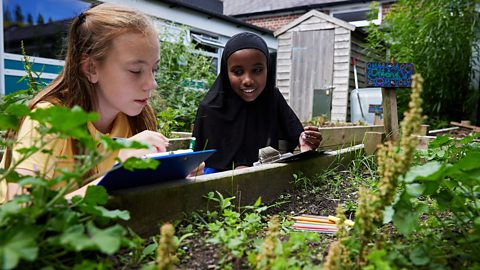
By Scott Evans
Primary school teacher, author and reading for pleasure adviser
This article was published in June 2020 and updated in June 2023.
A buzz about reading reverberates around my classroom.
We all know the long-term life benefits of being literate. We know that reading can improve a child’s comprehension, vocabulary, spelling, speaking, listening, writing and overall general knowledge.
Research shows that reading not only makes a big difference to a child's educational achievement across the curriculum, but also to their personal, social and emotional development. Reading is a powerful factor in determining a child's future aspirations, irrespective of their parents’ level of education or their socio-economic background.
In my opinion, reading should be our top priority in the classroom. But how can we infuse our children with a genuine love of reading and keep them engaged with reading throughout their school careers and into their adult lives?
A chapter a day
It’s never too early to start reading aloud to children. Being read to allows children to become familiar with, and to recognise, the language patterns and voices that they hear and they begin to use this to make sense of the world around them. Reading aloud to children is the first step in building a reading culture where books and stories are shared together and helps to create a lifelong reading habit.
Reading should take place every day and optimally for a period of 20 minutes in a single sitting. This allows sufficient time to read a picture book or a chapter of a novel, and the opportunity for discussion to further children’s comprehension and interest on a deeper, more personal level.

Make the time and the choice
Talking about books is as important as reading them. Be sure not to just make the time for reading and talking about books, but also to protect this time in the face of the demands of a busy timetable and a congested curriculum.
If the book you are reading as a class can be voted for or selected by children, this can help to stimulate and maintain their interest. Children will feel a sense of ownership in collectively contributing to that choice.
Reflecting realities, expressing empathy
Surrounding children with books helps them to realise that literature is an essential part of their lives. You don't need hundreds of books on your shelves but there should be a variety of books to browse that represent and reflect a wide range of diverse characters, settings, backgrounds and cultures.
Offering a variety of books and carefully considering how best to use them to enhance your school’s curriculum, enables children both to encounter people like themselves and to learn with empathy about people, places and events outside their own experiences. This is vital because, as Rudine Sims Bishop said, books are both a mirror and a window to our world.
When we talk about literature, we are not just referring to fictional books. We are living in a golden age of children’s literature and providing children with a broad and balanced diet of non-fiction, poetry, picture books and graphic novels is essential.
All in this together
Involving the whole school is paramount in developing enjoyment of reading in children. This should include all stakeholders within your school, from the senior leadership team to support staff, and from pupils to parents.
Building a reading link between school and home is an effective way of sustaining a love of reading. Reading is a great way to bring families together to share books. Teachers and schools have a part to play in helping and encouraging families to recognise this. Reading together on the sofa, sharing bedtime stories, visiting a bookshop or library or taking part in the are just some ways of spending quality time with each other.
The Summer Reading Challenge is the UK’s biggest reading for pleasure programme for children aged 4 to 11. Children can sign up for free at their local library or online on the website. The 2023 Challenge launches on 24 June in Scotland and 8 July in England and Wales. You can find free resources to support the Challenge , and to book an assembly and find out more about what’s happening in your area.
Be a reader teacher
My biggest tip for all teachers - new and experienced in the profession - is to read yourself. The effects are truly infectious as children who see adults enjoying reading are much more likely to want to read themselves.
I really do not think I understood the children in my classes, or myself as a teacher, until I started regularly reading with the children. Book recommendations, reviews and a buzz about reading all now reverberate around my classroom. If you step inside my school, you are just as likely to hear conversation about a range of books, authors, illustrators and poets as you are about bottle flipping, dabbing or whatever the latest craze is!
Reasons to read
The reasons we read are plentiful and include to be informed, to be entertained, to learn, to be inspired, to empathise or to escape.
Sometimes, as teachers, we need to help children find their motivation to read. We can achieve this by matching books to their hobbies, interests and passions. By being readers ourselves and knowing our children well as individuals, we can identify any source of reluctance to read and provide them with the right book at the right time.
Ultimately, the vision and the world we want to create is one where everyone is reading their way to a better life.

Flipping the frame on staff wellbeing: Tips for school leaders. document
Teacher, governor and school leader coach Dr Emma Kell shares her advice on looking after colleagues' wellbeing.

How to teach children about climate change. document
Primary science specialist Claire Seeley details ways of teaching about climate change that ensures accuracy and sensitivity for young learners.

Teacher Support Articles. collection
All our articles for teachers in one place, sharing peer-to-peer advice and personal experiences.
